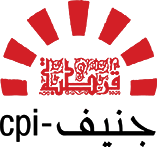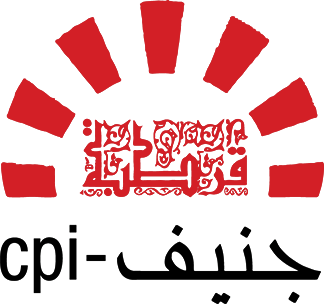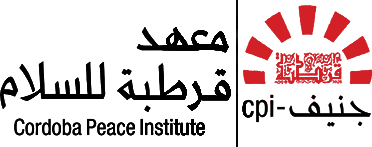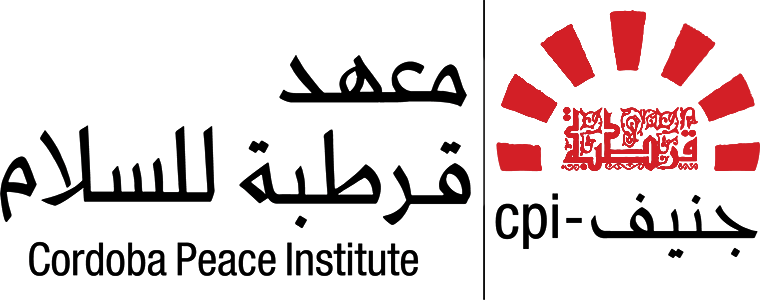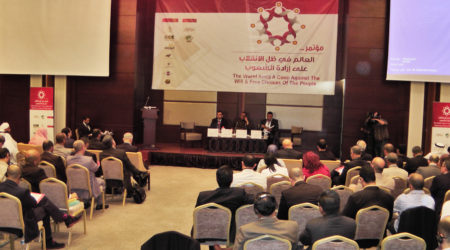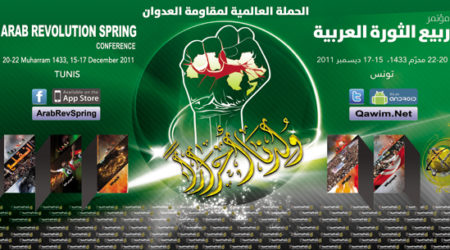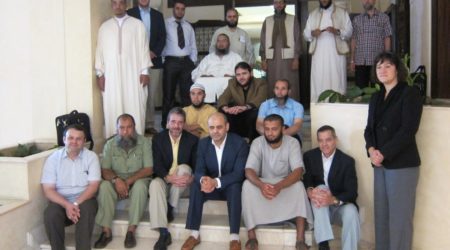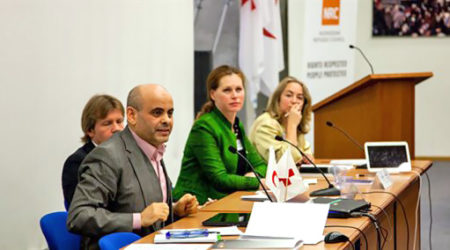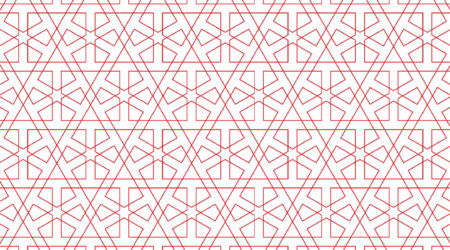Visite de la délégation irakienne
Iraqi Delegation Visit
Compte rendu – Report
Genève, 30 Avril – 2 Mai 2009
{snippet open_ocre}
|
L’Irak, an VII de l’occupation Une délégation de personnalités irakiennes de divers horizons politiques a effectué une tournée en Europe, couvrant notamment Stockholm, Oslo, Bruxelles, Paris et Genève. Elle a été accuillie à Genève par la Fondation Cordoue et la Fondation Alkarama pour les droits de l’homme. Le but de cette tournée a été de rencontrer des représentants d’organisations internationales et d’ONG dans le but de les informer sur la situation politique, sécuritaire et des droits humains en Irak et de présenter une perspective nationale pour sortir de la crise qui s’est récemment aggravée avec une intensification de la violence meurtrière. La délégation était composée des personnalités suivantes :
Prof. Mohammed Bashar Al Faidhi, membre du Secrétariat-général et porte-parole de l’Instance des Ulémas Musulmans en Irak, regroupant des leaders religieux œuvrant pour l’amélioration des relations entre Sunnites et Shiites dans le cadre d’un projet national. L’Instance mène aussi des activités sociales envers les démunis et prend en charge les familles des Irakiens blessés ou détenus. En tant que porte-parole de l’Instance, Prof. Al Faidhi a participé à plusieurs séminaires en Europe, notamment celui organisé en Espagne en 2008 par le Comité pour la solidarité avec le monde arabe. M. Raad Nassir Al Adhami, président du Rassemblement de l’Allégeance en Irak, un parti politique qui a participé aux dernières élections législatives, mais à cause du non respect des critères internationaux pour des élections libres et transparentes, et après avoir soulevé cette question, sans succès, en compagnie d’autres personnalités politiques irakiennes, avec l’ambassadeur des Etats-Unis de l’époque, Zalmay Mamozy Khalilzad, il a préféré se retirer à la veille des élections. M. Mohammed Hassan Khalef, président du 1er Conseil de gouvernement de la ville de Falloujah. Il a une grande expérience de travail avec les autorités étatsuniennes, aussi bien militaires que civiles, dans une ville dont la bataille a constitué un tournant dans la guerre en Irak. Gen. Saifaldin Nasser Al Okidi, ancien général de l’armée irakienne. Il a aussi été détenu par les forces étatsuniennes, ce qui lui confère une connaissance particulière des violations des droits de l’homme en Irak. Au cours de son séjour à Genève, la délégation a rencontré des représentants du Centre de Genève pour le contrôle démocratique des forces armées où elle a abordé la question des milices armées et a souligné la nécessité pour l’armée irakienne de retourner à son mandat national originel et de cesser de servir des intérêts sectaires. La délégation a également rencontré le Secrétaire général de l’Union Interparlementaire, avec qui elle a partagé ses préoccupations face à l’absence de crédibilité de l’actuel processus politique irakien, ainsi que l’illégitimité de l’actuel parlement, produit d’un processus électoral qui manque les exigences minimales pour des élections libres et transparentes. Elle a également soulevé le cas du député irakien Mohammad Al-Dainy qui a disparu à Bagdad après sa visite à Genève en octobre de l’année dernière, au cours de laquelle il avait informé les organisations basées à Genève sur la situation des droits de l’homme en Irak. Une réunion avec les ONG des droits humains basées à Genève a également été organisée. La délégation a discuté avec ces ONG de ses préoccupations concernant les violations des droits humains en Irak, et a souhaité qu’elles travaillent sur la situation en Irak et qu’elles œuvrent pour que le mandat du Rapporteur spécial sur l’Irak soit renouvelé. La délégation a également rencontré le Mission permanente de la Suisse auprès de l’Organisation des Nations Unies à Genève, où elle a souhaité un rôle plus actif de la Suisse, en tant que facilitateur, pour mettre un terme à la crise en Irak. La délégation s’est également entretenue avec le Comité international de la Croix-Rouge sur la situation humanitaire en Iraq, en particulier celle des détenus, ainsi qu’avec le Haut Commissariat des Nations Unies pour les Réfugiés, où la délégation a exprimé ses préoccupations du sort des réfugiés irakiens dans les pays voisins, ainsi que le problème des déplacés internes (PDI). La délégation a rencontré un représentant de l’Office du Haut Commissaire aux droits de l’homme pour l’entretenir des violations des droits humains qu’elle a documentés ainsi que la situation générale des droits humains en Irak. Une conférence de presse a eu lieu au Club Suisse de la Presse, au cours de laquelle la délégation a parlé de plusieurs sujets, y compris les droits des minorités, ce qui se passerait suite au retrait des forces étatsuniennes et le rôle de l’Iran dans les affaires irakiennes. Le professeur Mohammed Bashar Al Faidhi a également accordé une interview à Aljazeera.net et a été invité sur le plateau du programme « Genève à chaud » de la chaîne de télévision Léman Bleu . {mgmediabot2}path=images/stories/videos/delegationIrak09/20090501_lemanbleu_oulemaIrak.flv|image=images/stories/videos/delegationIrak09/thumbs/20090501_lemanbleu_oulemaIrak.jpg|width=320|height=260|displayheight=240{/mgmediabot2}
|
{snippet close_ocre}
English version:
{snippet open_ocre}
|
Iraq in its 7th year of occupation A delegation of key Iraqi figures from diverse political backgrounds, while touring key European cities including Stockholm, Oslo, Brussels and Paris, visited Geneva from 29 April to 2 May 2009 where they were hosted by the Cordoba Foundation for Peace Promotion and Alkarama Foundation for Human Rights. The aim of the visit was to inform various international organisations, NGOs and the media of the political, security and human rights situation in Iraq, and to present their national perspective on bringing an end to the crisis which has recently witnessed an increase in deadly violence. The delegation was composed of:
Prof. Mohammed Bashar Al Faidhi is a member of the Secretariat-General and spokesperson of the Association of Muslim Scholars in Iraq, representing Iraqi religious leaders and working towards improving relations between Shiite and Sunnite within an Iraqi national political perspective. The Association also carries out social activities to help those who have lost their sources of income and looks after the Iraqi families of those wounded or being detained. As spokesperson for the Association, Prof. Al Faidhi has participated in several symposia in Europe, including that organised by the Committee for Solidarity with the Arab World held in October 2008 in Spain. Mr Raad Nassir Al Adhami is the President of the Loyalty for Iraq Grouping, a political party which participated in the last general elections. He pulled out of the race on the eve of the elections after he and a number of Iraqi politicians raised their concerns on the lack of compliance with international standards for open and transparent elections with the US Ambassador at the time, Zalmay Mamozy Khalilzad, without result. Mr Mohammed Hassan Khalef was the President of the first Governing Council of the city of Fallujah. He has experience working with US military and civilian authorities in a city known for a battle which represented a turn in the American war. Gen. Saifaldin Nasser Al Okidi is a former General of the Iraqi Army. He was also detained by US forces, which has provided him with unique insight into human rights violations taking place in Iraq. During their stay in Geneva, the delegation met with representatives of the Geneva Centre for the Democratic Control of Armed Forces, where they addressed the issue of armed militias and spoke of the necessity for the Iraqi Army to return to its original, national mandate, and move away from serving certain sectarian interests. The delegation also met with the Secretary-General of the Inter-Parliamentary Union, with whom they shared their concerns at the lack of credibility of the current Iraqi political process, as well as the illegitimacy of the current parliament, a product of an electoral process lacking minimum requirements for free and fair elections. They also raised the case of Iraqi MP Mohammad Al-Dainy who disappeared in Bagdad after his visit to Geneva in October last year, during which he informed Geneva-based organisations about the situation of human rights in Iraq. A meeting with Geneva-based human rights NGOs and peace foundations was also organised, with whom the delegation discussed their concerns about the human rights violations in Iraq, and requested they work on the situation in Iraq and for the mandate of the Special Rapporteur on Iraq to be re-instated. The delegation also met with the Swiss Permanent Mission to the United Nations in Geneva, where they requested a more active role of Switzerland, as a facilitator, in bringing an end to the crisis in Iraq. A meeting with the International Committee of the Red Cross was also held, during which the delegation exchanged views on the humanitarian situation in Iraq, particularly that of detainees. A meeting was arranged with the United Nations High Commissioner for Refugees, where the delegation expressed their concerns at the plight of Iraqi refugees in neighbouring countries, as well as the problem of Internally Displaced Persons (IDPs). The delegation also met with a representative of the Office of the High Commissioner for Human Rights to discuss specific human rights violations which they have documented in Iraq as well as the overall human rights situation. |
{snippet close_ocre}
